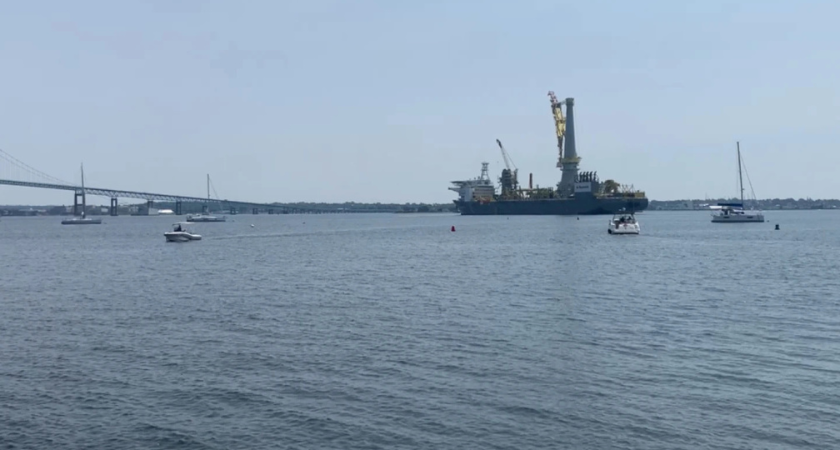
WASHINGTON — September 2025 — In a major setback for the U.S. offshore wind industry, the Trump administration has cancelled $679 million in federal funding for ports that were slated to support construction and logistics for offshore wind projects across the country.
The move represents the latest escalation in President Trump’s campaign against wind power, which he has long criticized as costly and harmful to wildlife. The decision reverses progress made under the Biden administration, which had approved port upgrade grants for 12 projects from California to Virginia.
.jpg)
“Wasteful wind projects are using resources that could otherwise go towards revitalizing America’s maritime industry,” U.S. Transportation Secretary Sean Duffy said Friday. He added that, where possible, the cancelled funds would be redirected to “address critical port upgrades.”
The announcement drew swift criticism from clean energy advocates and lawmakers in affected states. Rep. Jared Huffman, D-Calif., whose district includes one of the defunded projects, blasted the move:
“This is a new level of idiocracy, where the Trump administration is trying to destroy an entire sector of clean energy, kill thousands of good paying jobs, and drive up electricity prices for American consumers.”
The funding cancellation comes just a week after the administration ordered companies to halt construction on a wind farm off the Rhode Island coast, citing unspecified “national security interests.” Trump has also pushed to cut tax credits for wind and solar energy, a move experts say could raise electricity prices nationwide.
Among the hardest-hit projects is the Humboldt Bay Offshore Wind Heavy Lift Marine Terminal Project in Northern California, which is losing more than $426 million in federal support.
For Humboldt Bay, the stakes are enormous. Once a timber industry hub, the rural port five hours north of San Francisco has struggled to reinvent itself. Offshore wind offered a transformative economic opportunity.
“It’s the biggest we’ve seen in the century, there’s no doubt about it,” said Chris Mikkelsen, executive director of the Port of Humboldt Bay. “We’re not talking about entry-level jobs. These are very skilled, very high-paying jobs. Jobs here in Humboldt County are in desperate need.”
The port had planned to use the funding to clean up contaminated sites, dredge waterways, build a larger wharf, and construct facilities capable of handling turbine blades longer than a football field.
“The federal [Trump] administration ran on rebuilding back America, building infrastructure, creating U.S. jobs, creating manufacturing – this project does all of that,” Mikkelsen added.
.jpg)
Despite the setback, Mikkelsen said he is determined to keep the project alive:
“This hurts a little bit, but it doesn’t change our focus and it certainly doesn’t change our outcome. An administration can’t change the fact that the U.S. has incredible energy demands.”
The cancellation threatens to slow the Biden-era target of generating 30 gigawatts of offshore wind by 2030, enough to power 10 million homes. Analysts from the National Renewable Energy Laboratory estimated that reaching that goal could create 77,000 jobs.
But Trump’s moratorium on new offshore wind projects, issued on his first day in office, and recent project cancellations have already created uncertainty for investors and developers.
“We’re not allowing any windmills to go up,” Trump said earlier this week. “Unless there’s a legal situation where somebody committed to it a long time ago, we don’t allow windmills.”
Industry leaders say the U.S. risks falling further behind Europe, where offshore wind is already a mature sector with thousands of turbines in place. Rising interest rates, higher construction costs, and now federal opposition compound the challenge.
“We will have an offshore wind industry in this country because it’s hard to imagine we can bring the kind of power we need to the coasts without it,” said Jason Grumet, CEO of the American Clean Power Association. “But at the moment the industry is very worried because projects are being cancelled with virtually no rationale.”
Despite the funding cancellations, states like California, Massachusetts, and New York continue to push forward with ambitious renewable energy mandates. Offshore wind, which produces electricity at night when solar is unavailable, remains central to their long-term clean energy strategies.
For now, though, port communities like Humboldt Bay face uncertainty over whether promised investment—and the jobs tied to it—will materialize.
Originally reported by Lauren Sommer in Rhode Island PBS.